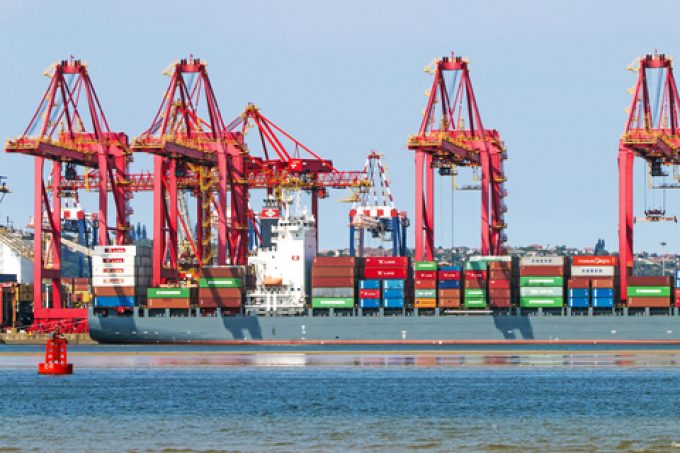Another strong month for US ports as container flows continue to rise
The main US ports enjoyed another stellar month in March, according to new figures from ...

Crane breakdowns and adverse weather are exacerbating delays at South Africa’s ports, despite a recent improvement in container throughput at its main gateways.
The South African logistics crisis has been escalating for years, and a lack of government investment into supply chain infrastructure has left the country’s ports, railways and roads extremely susceptible to disruption.
However, for the week ending 15 March, the South African Association of Freight Forwarders (SAAFF) reported that ports had handled an average of 8,838 containers a day, up significantly on the 7,755 handled the week before.
And state-owned port operator Transnet (TNPA) reported, in its February figures, that 23% more containers were handled than in January and 26% year on year.
“The increasing quantities of cargo handled – in conjunction with the monthly reported volumes from TNPA – for our container industry are starting to indicate that we may have turned a corner, as far as port operations go,” said SAAFF.
However, it warned: “It is probably too early to take this as a firm trend. Some caution must be expressed, as several indicators have again turned for the worse.”
SAAFF highlighted areas of concern such as the number of vessels at anchor off Durban, the queue-to-berth ratio of containers and the ongoing equipment shortages and breakdowns.
Maersk today advised customers that the wait time at Durban Pier 1 had deteriorated to five days, from the previous two-to-three, and also announced that Durban Pier 2 was seeing “productivity well below target”, and recorded a wait time there of 22-28 days.
The Danish carrier further warned that Cape Town was also suffering, with up to five-day delays across its terminals, largely due to high winds.
On Friday, TNPA had released a “wind recovery plan” for the Cape Town terminals, with mitigation strategies involving shutting down operations before and during expected bad weather.
Maersk added to customers: “We will minimise delays through network actions and contingencies, which shall compensate for any delays in cargo arrival and export loading. Upon departure from South Africa, our vessels shall sail at full speed to make up for lost time and ensure the timely arrival at the destination.”
Meanwhile, Transnet has also released a public consultation document for the reform of its rail freight network, which contains a range of proposals, including establishing service level agreements between TNPA as infrastructure manager and private rail freight operators.
Comment on this article